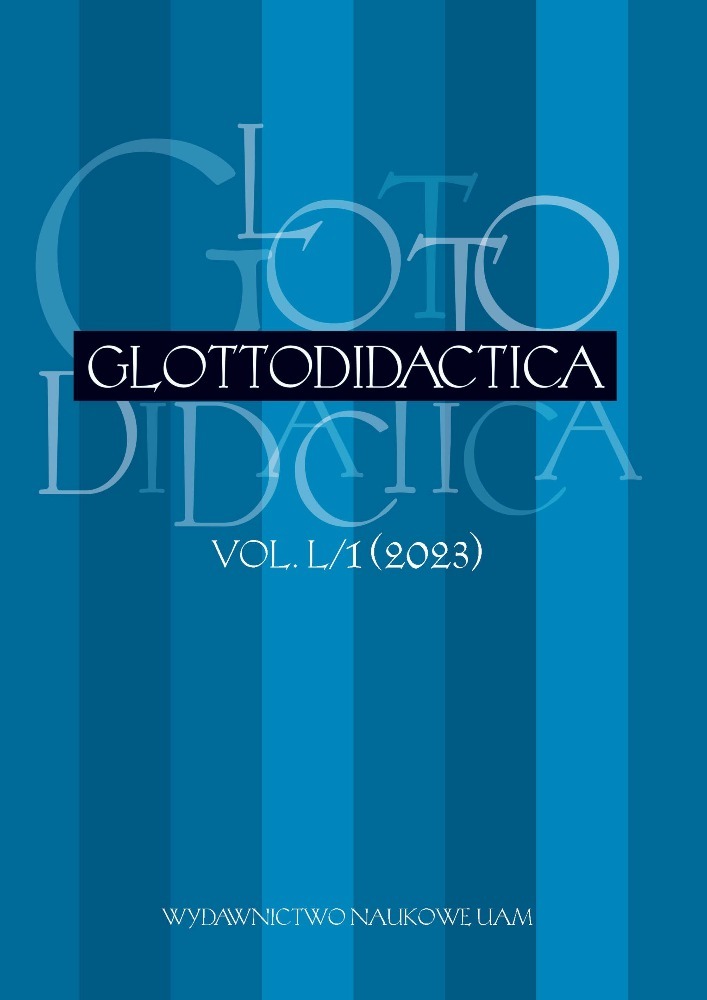Résumé
Institutional and family support for multilingual development. Issue under the auspices of the MaMLiSE project (Majority and Minority Languages in School Environment: Helping teachers, pupils and parents) https://mamlise.amu.edu.pl/
Références
Ballweg, S. (2022). Anticipating expectations. Family Language Policy and its orientation to the school system. International Journal of Multilingualism, 19 (2), 251–268. DOI: https://doi.org/10.1080/14790718.2022.2033756
Ballweg, S. / Havkic, A. (2022). Sprachaneignung und mehrsprachige Praktiken in ihrer sozi- alen Situiertheit. Einige Überlegungen zum Zusammenspiel von Deutsch als Fremd- und Zweitsprache und soziolinguistischer Mehrsprachigkeitsforschung. In: M. Pieklarz-Thien / DOI: https://doi.org/10.14220/9783737013789.25
S. Chudak (eds.), Wissenschaften und ihr Dialog in der Forschung zum Lehren und Lernen fremder Sprachen (pp. 25–52). Göttingen: Vandenhoeck & Ruprecht.
Bezcioglu-Göktolga, I. / Yağmur, K. (2018a). Home language policy of second-generation Turkish families in the Netherlands. Journal of Multilingual and Multicultural Development, 39 (1), 44–59. DOI: https://doi.org/10.1080/01434632.2017.1310216
Bezcioglu-Göktolga, I. / Yağmur, K. (2018b). The impact of Dutch teachers on family language policy of Turkish immigrant parents. Language, Culture and Curriculum, 31, 220–234. DOI: https://doi.org/10.1080/07908318.2018.1504392
Carvalho, M. (2001). Rethinking family-school relations. A critique of parental involvement in schooling. New York / London, England: Routledge. DOI: https://doi.org/10.4324/9781410600332
Daase, A. (2017). Heteroglossische Subjektivitäten im Übergang – Sprachlichkeit aus der Subjekt- perspektive. In: A. Daase / U. Ohm / M. Mertens (eds.), Interkulturelle und sprachliche Bildung im mehrsprachigen Übergang Schule-Beruf (pp. 109–134). Münster: Waxmann.
Gogolin, I. / Lange, I. (2010). Durchgängige Sprachbildung. Eine Handreichung. Münster: Waxmann.
Green, D. (1998). Mental control of the bilingual lexico-semantic system. Bilingualism: Language and Cognition, 1, 67–81. DOI: https://doi.org/10.1017/S1366728998000133
Grosjean, F. (1989). Neurolinguists, beware! The bilingual is not two monolinguals in one person. Brain and Language, 26, 3–15. DOI: https://doi.org/10.1016/0093-934X(89)90048-5
Grosjean, F. (2001). The bilingual’s language modes. In: J.L. Nicol (ed.), One mind, two languages: Bilingual language processing (pp. 1–22). Hoboken, NJ: Wiley-Blackwell.
Kirsch, C. / Aleksić, G. / Mortini, S. / Andersen, K. (2020). Developing multilingual practices in early childhood education through professional development in Luxembourg. International Multilingual Research Journal, 14 (4), 319–337. DOI: https://doi.org/10.1080/19313152.2020.1730023
Mary, L. / Young, A. (2020). Teachers’ beliefs and attitudes towards home languages maintenance and their effects. In: A. Schalley / S. Eisenchlas (eds.), Handbook of home language maintenance and development. Social and affective factors (pp. 444–463). Berlin et al.: De Gruyter Mouton. DOI: https://doi.org/10.1515/9781501510175-022
Masterson, M. (2017). Perception of the self and other and the role of language: An exploratory qualitative study. Frankfurt (a. M.): Peter Lang. DOI: https://doi.org/10.3726/b11441
Rokita-Jaśkow, J. / Wolanin, A. / Król-Gierat, W. / Nosidlak, K. (2022). Bridging the ‘dual lives’: School socialization of young bi/multilinguals in the eyes of EFL teachers. International Journal of Bilingual Education and Bilingualism, 26 (4), 395–410. . DOI: https://doi.org/10.1080/13670050.2022.2114788
Szczepaniak-Kozak, A. / Farrell, A. / Ballweg, S. / Daase, A. / Wąsikiewicz-Firlej, E. / Masterson, M. (2023). Promoting multilingual practices in school and home environments. Perspectives from Germany, Greece, Ireland and Poland. Göttingen: Vandenhoeck & Ruprecht. DOI: https://doi.org/10.14220/9783737015639
Licence
© Emilia Wąsikiewicz-Firlej, Sandra Ballweg, Mary Masterson, Andrea Daase, Angela Farrell 2023

Ce travail est disponible sous licence Creative Commons Attribution - Pas de Modification 4.0 International.
Auteurs
Les auteurs de textes acceptés pour publication dans la revue Glottodidactica sont tenus de remplir, signer et renvoyer à l'adresse de la rédaction, un accord sur l'octroi d'une licence gratuite pour les œuvres, avec obligation d'accorder une sous-licence CC.
Conformément à cet accord, les auteurs des textes publiés dans la revue Glottodidactica accordent à l'Université Adam Mickiewicz de Poznań une licence non exclusive et gratuite et autorisent l'utilisation de la sous-licence Creative Commons Attribution-NoDerivatives 4.0 International (CC BY-ND 4.0).
Les auteurs se réservent le droit de disposer librement de l'œuvre.
Utilisateurs
Les utilisateurs d'Internet intéressés ont le droit d'utiliser les œuvres publiées dans la revue Glottodidactica depuis 2016, selon les conditions suivantes :
- Attribution – obligation de fournir, conjointement avec l'œuvre distribuée, des informations sur l'auteur, le titre, la source (lien vers l'œuvre originale, DOI) et la licence elle-même.
- Aucune modification – l'œuvre doit être préservée dans sa forme originale. Sans le consentement de l'auteur, il n'est pas possible de distribuer l'œuvre modifiée sous forme de traductions, publications, etc.
Les droits d'auteur sont réservés pour tous les textes publiés avant 2016.
Autres
L'Université Adam Mickiewicz de Poznań conserve les droits sur la revue dans son ensemble (mise en page, forme graphique, titre, conception de la couverture, logo, etc.).
A PARTIR DE L’ANNEE 2015, LES ARTICLES PUBLIÉS DANS LA REVUE SONT DISPONIBLES SOUS LICENCE CREATIVE COMMONS : https://creativecommons.org/licenses/by-nd/4.0/deed.fr





